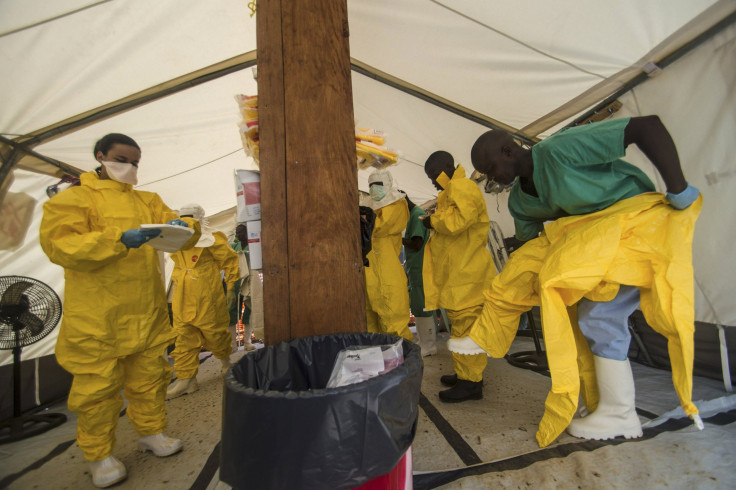Can The Ebola Epidemic Spread Beyond Africa Through International Air Travel?

The Ebola virus outbreak in Sierra Leone, Liberia and Guinea, the world’s deadliest so far, has claimed 672 lives. But news Friday the disease killed a passenger who flew from Monrovia, Liberia, to Lagos, Nigeria, has raised concerns about whether the epidemic will spread beyond West Africa through international air travel.
Asky, the major West African airline that flew ill-fated passenger Patrick Stewart to Nigeria, announced Tuesday it would suspend all flights to and from Liberia and Sierra Leone as a result. Arik Air, the biggest airline in Nigeria, grounded flights to those countries Sunday.
The World Health Organization, however, has not yet imposed travel restrictions on the area while the U.S. Centers for Disease Control and Prevention is simply urging travelers to Sierra Leone, Liberia and Guinea to take “enhanced precautions” that include avoiding contact with bodily fluids from potentially infected people.
“It’s true that anyone with an illness is just one plane ride away from coming to the U.S.,” John O’Connor, a spokesman for the U.S. Centers for Disease Control and Prevention, told ABC News. “But we have protections in place.”
The CDC dispatched teams to West Africa to help contain the outbreak while airport authorities in Africa have enacted passenger screening measures to ensure infected people do not board a plane.
Meanwhile, international health workers are tracking 50 other passengers who shared Stewart’s flight for symptoms of the disease, which include fever, vomiting, sore throat, diarrhea, rash and red eyes.
O’Connor added that quarantine officers stationed at major airports in the United States, including New York’s JFK, know what to look for and how to respond if passengers contract a disease in-flight.
Eden Wells, an epidemiology professor at the University of Michigan's School of Public Health, said the likelihood of Ebola, which has a mortality rate as high as 90 percent, spreading beyond West Africa via air travel is extremely low.
“The disease spreads when you come in contact with the contaminated fluids of a sick person who may be coughing, throwing up, having diarrhea,” Wells said. “But once people become sick and start showing symptoms, which is when the disease is contagious, they are definitely not going to feel well enough to travel.”
And if someone who is experiencing symptoms does get on a plane, the odds of other passengers catching the virus are also slim.
“Transmission requires very close contact with bodily fluids, like blood or mucus,” Mark Gendreau, a physician who specializes in aviation medicine, told NPR. “You need prolonged contact with somebody.”
Delta and United, the two U.S. airlines that offer direct flights from the U.S. to West African destinations, including Lagos and Accra, have not altered their flight operations.
“As a routine matter for operating a global airline, Delta has infrastructure and processes in place to monitor and quickly respond to potentially contagious diseases around the world, including regular communication with global health organizations and access in the air and on the ground to professional medical advisers,” the airline said in a statement.
When asked for comment, United Airlines referred a reporter to Airlines For America, a trade group that represents the industry. Victoria Day, a spokeswoman for the group, said in an email members "remain in close contact with the CDC on actions the U.S. government is taking regarding potential health concerns. Airlines and our airport partners routinely remind customers to follow CDC guidelines regarding travel when ill and also precautions to take to stay healthy while traveling.”
© Copyright IBTimes 2024. All rights reserved.





















